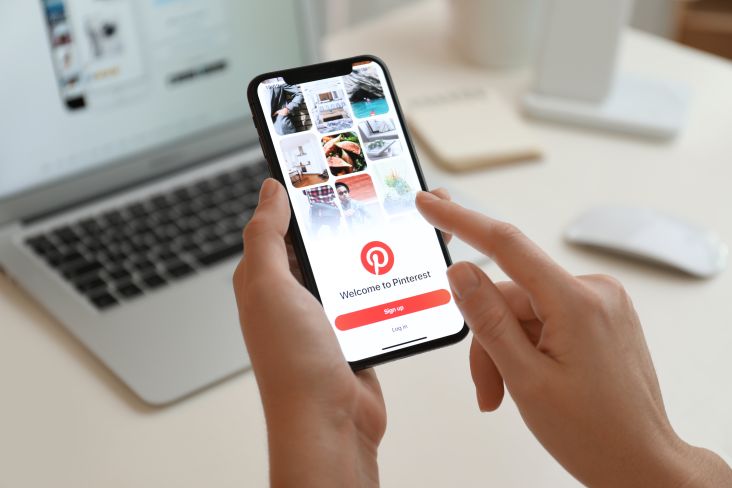The reasons why you shouldn't be afraid to go freelance
Wish you had the guts to go freelance? Are you dreaming of the day you can start your own business? What's stopping you?

Image licensed via Adobe Stock
Well, there could be plenty of reasons. You might be afraid of the unknown. You might lack confidence and think you're not good enough. You could prefer the job security of your full-time career, believing that freelancing is way too risky.
If you're stuck in a job you don't like and you want to work for yourself, it's time to stop procrastinating and start making a name for yourself. Here are the top eight fears of going freelance and why you shouldn't be afraid to work for yourself.
Fear #1: I'm better off in a secure, full-time job
First and foremost, stop making the excuse that your job is more reliable than freelancing. Job security is a myth. No job is secure, particularly in this current climate. Once you realise that nothing is permanent, you'll start to understand why being employed isn't necessarily as safe as you think.
Of course, freelancing is always going to be tough because you have to work harder to ensure there's money in the bank. But isn't that the case when you're employed by someone else? I.e. you have to work hard to keep your job? Think about it. No job is safe.
Fear #2: I don't know how to set up a business
One of the biggest excuses I always hear from people is that they don't know how to get started. It's so easy to set up your own business; you need to know the basics. You pick a name and ensure no one else is using it. You inform the Inland Revenue that you're a 'sole trader' and you set up a business bank account.
Ok, so there's a little more to it than that, but it isn't complicated. Read this how to go freelance, your step-by-step guide, and you'll begin to see why it's nothing to be afraid of.
Fear #3: It's too difficult and risky to get started
Many people begin freelancing by having a full or part-time job and carry out freelancing work on the side. It's how I got started and you can, too! Unless you have a partner who can cover the bills for both of you, this is the only way you can build up your client base without taking too much risk.
You'll want to transition from full-time employment to freelancing slowly. It means you'll often have to work evenings and weekends, sacrificing your spare time to build up your own business. Unfortunately, there's no easy fix. Be prepared to work very hard in the early days, and you'll soon be able to leave your job.
Fear #4: I'm worried about the current economic climate
It's understandable why many people feel safer in their jobs during the current economic climate. Especially when they've got mortgages to pay and families to look after. But freelancing during downturns doesn't seem to affect small businesses as much as larger ones.
Freelancers tend to benefit when everyone's tightening their purse strings. That's because freelancers offer value and are often flexible, making them an attractive option for people to hire them. I've been through two recessions since I went freelance, and I've survived and built up a successful business. You can, too. It just takes guts and lots of hard slogs.
Fear #5: I don't think I'm good enough
If you're good, you'll always be busy. That's a fact. Some people go freelance and fail because their skills and experience aren't good enough. Think long and hard before you go freelance. Do your skills offer value? Are you suitably qualified? If you don't think you've got enough skills or experience under your belt, stick at your job for a little while longer.
Gather up as much experience as you can and when you're feeling more confident, go for it! Read this article on 80 ways to become a better freelancer for some extra tips.
Fear #6: I'm scared I won't be able to pay the bills
Money is the most crucial aspect of survival when freelancing. You have to pay your bills, of course. But if you've got yourself established and you have a pretty decent client base, then you shouldn't have a problem. Just remember that you should never rest on your laurels.
You should always be looking to win the next piece of work, so focus on your marketing every day and don't neglect networking opportunities. Keep a reserve of money as a safety net to be prepared for those quieter periods.
Fear #7: I'm not sure I'll be able to win clients
Although winning new clients can be difficult, as long as you work hard to market yourself, you shouldn't have an issue. Remember, the more you put in, the more you'll get back. Make sure you have a website that's appealing and easily found online. Get yourself active on social media channels like Twitter. Go to networking events. Follow up new enquiries. Read this article on how to generate new leads, and you should be on the right track.
Fear #8: I'm concerned freelancing will overtake my life
Freelancing is tough. You have to do all your marketing, networking and administration as well as provide services to clients. It can take up a lot of your time and cause lots of stress. But if you're disciplined, you can enjoy the freedom that freelancing brings. To avoid an unhealthy work/life balance, read this article on how to be a happy freelancer.




 by Tüpokompanii](https://www.creativeboom.com/upload/articles/58/58684538770fb5b428dc1882f7a732f153500153_732.jpg)

 using <a href="https://www.ohnotype.co/fonts/obviously" target="_blank">Obviously</a> by Oh No Type Co., Art Director, Brand & Creative—Spotify](https://www.creativeboom.com/upload/articles/6e/6ed31eddc26fa563f213fc76d6993dab9231ffe4_732.jpg)

















